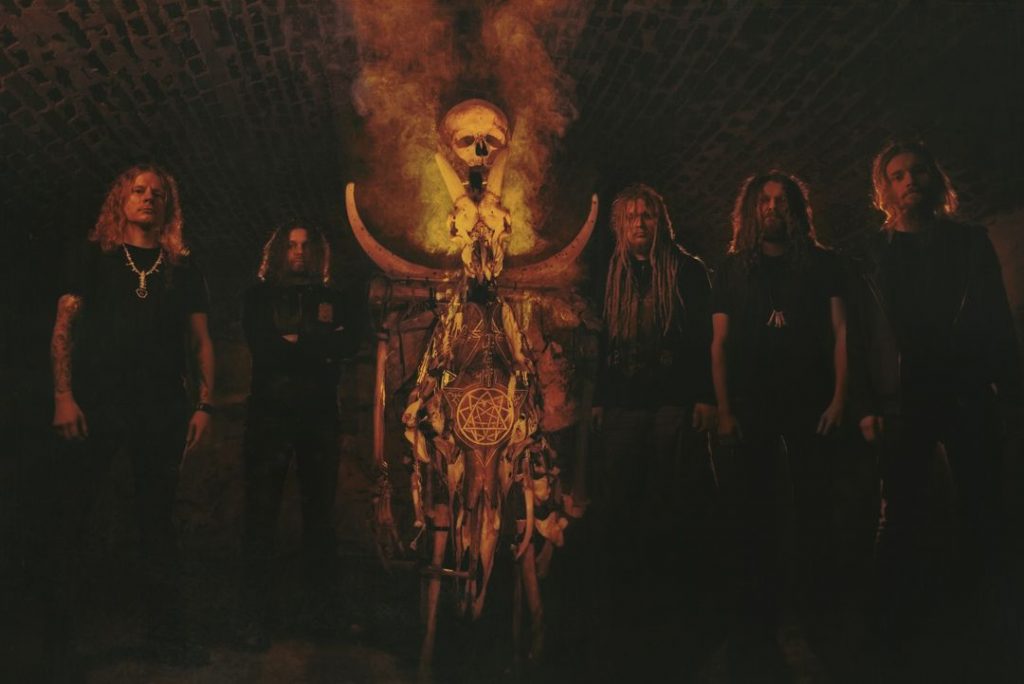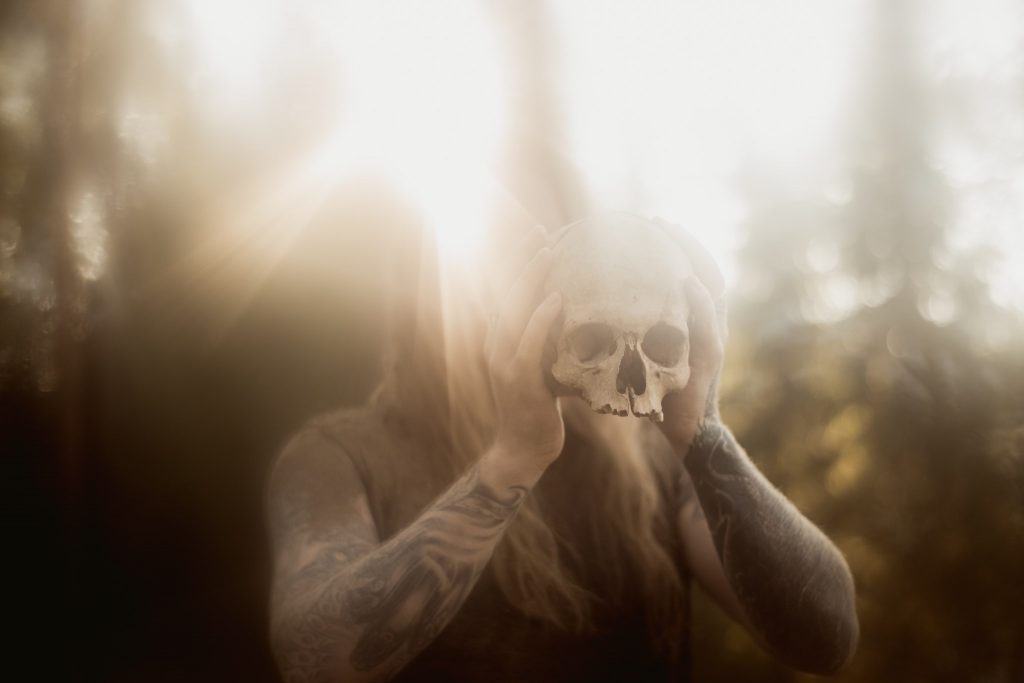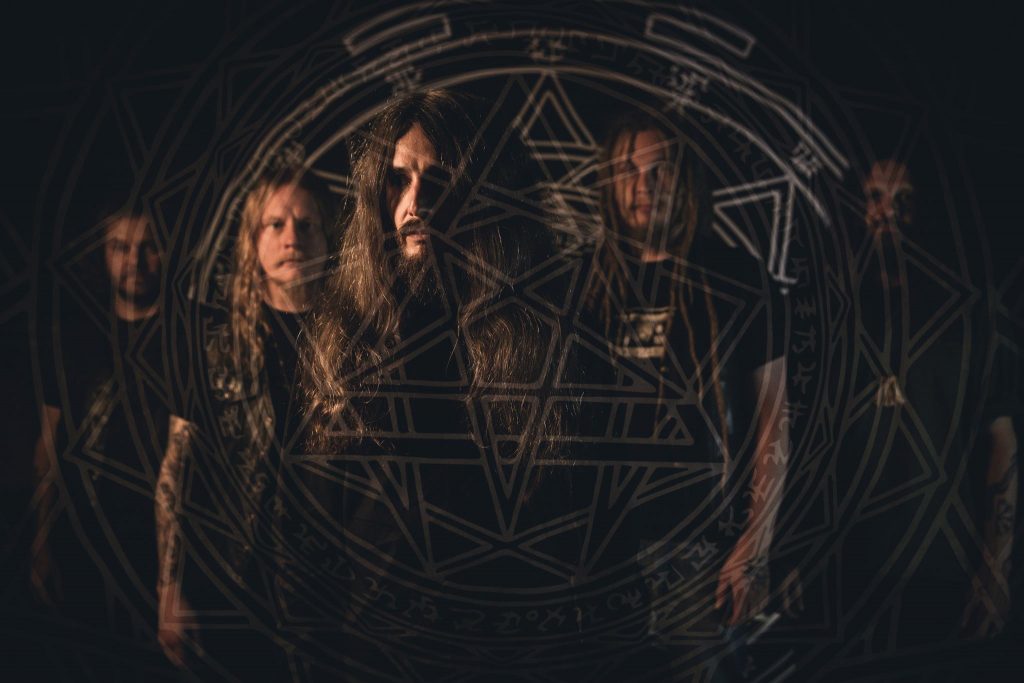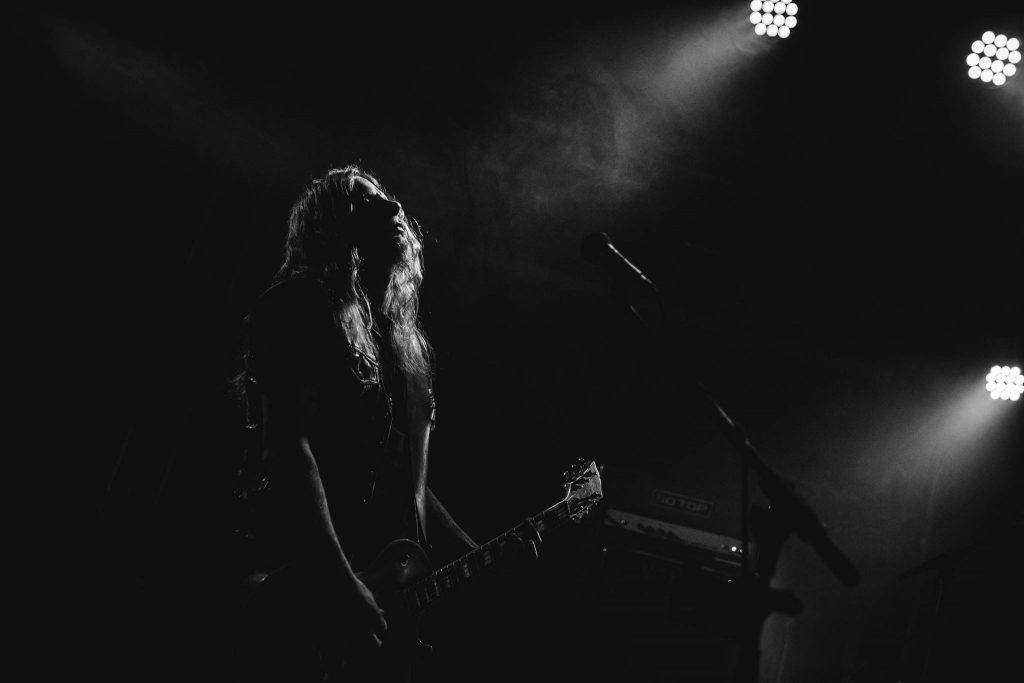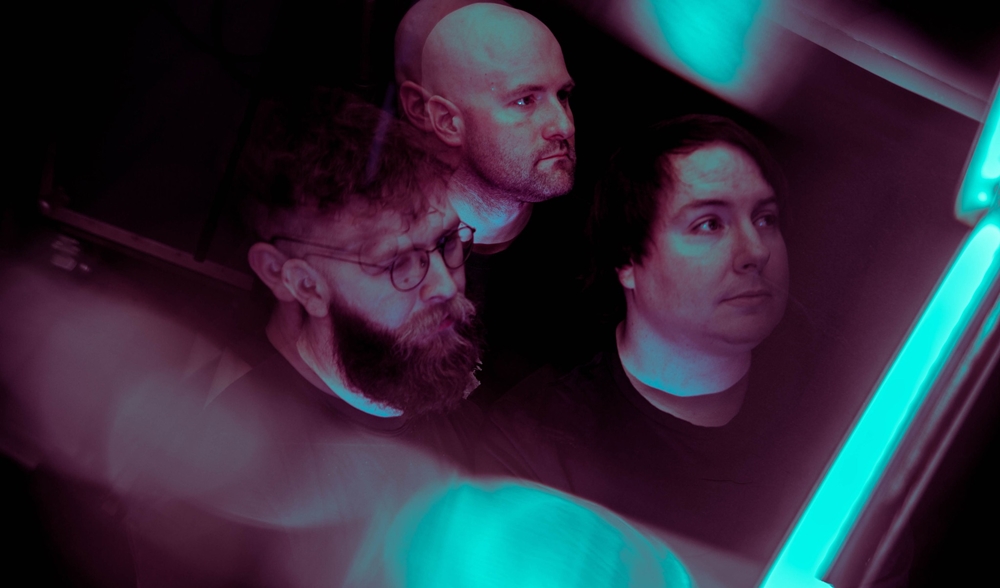DARK BUDDHA RISING is now preparing the arrival of their next full-length, Mathreyata, for November 13th via Svart Records; on this occasion, we interviewed Vesa Ajomo (guitars, vocals) about the band’s influences, their collaboration with Dehn Sora, and many more.
We are currently living through a very trying and charged time right now, so I am curious to know how your music is reflecting this period?
In a musical sense, we have always closed the surrounding world out of our rehearsal place. It is a sanctuary from the daily reality that we live in. Things come and go, and we will keep our creative space free from turmoil.
Tell us more about your collaboration with Dehn Sora. You knew what you wanted, or he had a free hand?
We played in the same event with Treha Sektori, and I liked his performance and visuals. I thought that if we would make a music video, Dehn Sora would be the first on my list for collaboration. I told him the initial vision of the album and he had the freedom to craft it through his art.
Your seventh album ‘Mathreyata’ will have its release on Friday the 13th of November via Svart Records and it is said to be your heaviest and darkest record yet. What were your main influences and inspirations?
Hard to point out any specific things because this music is more or less created at the moment by improvisation and then evolved so that is inspiring for us to play it. Also, the lyrics and cover art are inspired by the music, but sometimes it works another way around as well. There is a lot of weight in intuition and we let the art come through.
‘Dark Buddha Rising has channeled a work for dark spirits and those who seek to travel beyond the unknown.‘ Where did your interest in the occult begin? Is this esoteric influence purely an aesthetic attraction or something deeper?
I have always felt this attraction towards these kinds of things, not necessarily the occult in the modern sense, but more metaphysical topics. DBR is the most profound thing I could ever do. It is not intentional to be esoteric or occult, but it is the only way I can express these things.
What do you know to be true of the world and how is this truth expressed through your art?
It depends on the perspective. Everything has its truth from their perspective. The scale from Universe to particles of an atom is so vast that there fits a lot of perspectives on the way. In that sense, the meaning of truth dissolves into cosmic silence. There is no truth.
For me, the inspiration and art feed each other, so it is like a serpent eating its tail until there is nothing left to eat except for the head itself, and then it is done.
What are currently your main compositional- and production-challenges?
This plague is really starting to challenge us in every way, but we will try to use this time to be creative in different ways. I think we will learn something from this. At least we will appreciate things that we can’t do now and what we thought what was taken for granted.
Does the conception come first or does the song evolve naturally – do you have a clear idea of what it will be before you start to make it?
It differs, but mostly we don’t have a clue what is about to happen.
Are there any styles you’d like to experiment with within your future music?
I guess we don’t make music that way that I could say we experiment with it.
When you perform live, how do you want your audience to feel as they leave the show?
Unraveled and filled with emptiness.
What does it mean to play and live in the millennial generation of artists? What do you borrow from those who came before you, and what do you do to push the genre forward?
I think the most important thing is to remain true to yourself and your art. Everything else is secondary. It is very easy to get lost in this hyperactive world, where everything is already digested and disposable. We do this because we have to, our existence demands it. I don’t know how we can push things forward or backward, we just make this music without thinking about the outcome.
In how much, do you feel, are creative decisions shaped by cultural differences – and in how much, vice versa, is the perception of sound influenced by cultural differences?
It is quite hard to say. After all, there is a lot of different people within every culture. But in general, I think there is a lot of difference in how people find music interesting or appealing. For example, something like folk metal. It is very popular in the south, but here in the north, it is not that popular. Maybe it is more exotic for southern people and they find it interesting and so on. For me, it sounds horrible and I can’t stand it. I think this goes for other things as well, not just music.
There are many descriptions of the ideal state of mind for being creative. What is it like for you? What supports this ideal state of mind, and what are distractions? Are there strategies to enter into this state more easily?
I tend to let pieces fall into their places and try to trust the intuition. Creating is like following instincts and try to deliver it with the abilities available. I can’t say if there is a different state of mind other than an inspired one. For me, the inspiration and art feed each other, so it is like a serpent eating its tail until there is nothing left to eat except for the head itself, and then it is done.
Follow Dark Buddha Rising on: Facebook | Bandcamp | Spotify
All images are taken from Dark Buddha Rising’s personal archive.
